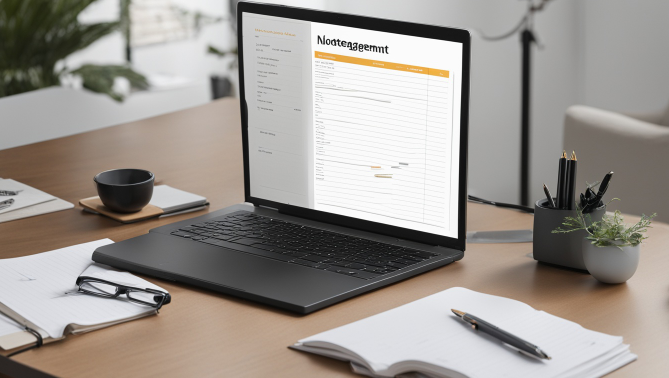Efficient meeting strategies boost productivity and make the most of facilitator skills. Viewing time as precious helps avoid disrespecting meeting members. It pushes aside important work. Studies link good time management to less work anxiety. It promotes better balance between work and life too.
Managing time well boosts work efficiency and growth. It helps people meet deadlines fast. This makes bosses trust their employees more. Workers feel happier in their jobs. Using time-blocking and avoiding distractions are key. They help keep focus in discussions.
Sometimes, it’s best to see if a meeting is not needed. Unnecessary meetings cost a lot of money each year. People spend two hours a week in these useless meetings. Meetings need clear goals and time plans for every part, and prioritized agenda items. This makes them work better. It saves time and money.
Why Effective Time Management Matters in Meetings
Effective time management in meetings is very important. It helps increase workplace productivity and meeting efficiency. With good time management, key topics are discussed without delay or distraction.
Impact on Productivity
Nearly 80% of people in meetings find late meetings unhelpful. Also, 65% feel poor time management lowers team productivity. At the start, 10 minutes often get wasted on small talk or distractions.
Starting and ending on time is seen as 40% more effective. It greatly boosts the team’s productivity. Using clear agendas and time plans can save up to 54% of meeting time that might be wasted.
Meetings ending 10 minutes early can make productivity go up by 30%. This shows well-planned meetings make workflows more efficient.
Improving Efficiency
To improve meeting efficiency, plan well and set clear goals. Since 90% of pros agree timely meetings are key, having set start and end times helps a lot. Around 75% of meeting interruptions come from phones and side chats.
Improving meeting processes can significantly enhance efficiency by utilizing technology for document sharing and task management, creating a more organized and collaborative environment.
Good time management lets businesses do more with less. It boosts productivity and makes work better for everyone. Managing time well builds confidence and encourages skill improvement. This fosters a culture of efficiency and productivity.
Common Challenges in Meeting Time Management
Managing time in meetings has some hurdles. These issues can mess up the meeting’s flow and productivity. Recognizing and dealing with these challenges is key.
Lack of Preparation
Not being ready is a big problem. If people aren’t prepared, discussions go nowhere. Agendas should be sent out early. This helps keep meetings on track.
Being organized is important too. It makes sure time is well spent. And that the meeting achieves its goals.
Distractions and Interruptions
Distractions can really hurt meeting time management. It usually takes 23 minutes to focus again after being distracted. Having a clear agenda helps avoid this.
To maintain focus during meetings, set clear agendas, limit distractions, and encourage concise communication. Appointing a time-keeper helps too. So does starting on time. These steps keep the meeting moving smoothly.
Putting things off can cause stress and even health problems. Encouraging folks to do one thing at a time helps. So does knowing when they work best.
This makes meetings more efficient. It’s crucial to get personal time management right. That way, you can have better meetings.
Creating a Purposeful Meeting Agenda
Creating a meaningful meeting agenda is key to driving the conversation to valuable outcomes. Clear objectives help show what the meeting will accomplish. They show how everyone can give their best. Setting goals guides the talk and choices made.
Assigning specific time slots to each agenda item ensures productive discussions and prevents tangents.
Define Clear Objectives
It’s vital to set clear goals in any meeting agenda. These goals make sure everyone knows the meeting’s aim. Brooke Paul, a well-known FAADOM member, suggests sharing the agenda early. This way, attendees can think ahead, making the meeting work better and more together.
Time Allocation for Topics
It’s crucial to divide time wisely among topics. Doing this keeps focus and lets in-depth discussions happen on important issues. Proper time allocation leads to more focused discussions, enhancing productivity and decision-making. Since March 2020, there are 13% more meetings. So, sticking to time helps run discussions well. Using timers keeps the talk even and stops it from going too long.
Importance of Collaboration in Time Management
Working together in time management helps make teams better. When everyone helps plan and manage time, everyone feels responsible. Studies show 65% of people think meetings disturb their work. And 71% say meetings often don’t help.
Using teamwork to manage time helps stop these problems. This makes meetings work better.
Teams that plan time together have better meetings. Everyone gets to say how long to talk about things. This makes everyone feel part of the team. Working together like this means tasks are more likely to get done on time. In fact, teams are 42% more successful when they do.
Using team methods to get work done helps a lot. For example, sharing tasks can make a leader’s job 35% lighter. It also makes team talks 20% clearer. Putting important things first can make teams 50% more productive. So, working together not only makes meetings better but also helps everyone feel happier and more involved.
Implementing Timing Strategies in Meetings
Successful meetings depend on good time management. Having set times in the agenda helps everyone know what’s next. This way, all topics get the attention they need efficiently.
Implementing these timing strategies ensures a productive meeting by establishing clear objectives and creating a structured environment.
Set Clear Timeframes
Talking about time management at the start sets the meeting’s flow. Meetings work better when everyone agrees on the timing. Research says making the agenda together meets everyone’s needs well.
It’s also crucial to set ground rules for meeting behavior to minimize interruptions and enhance focus. Establishing clear expectations fosters a respectful atmosphere and contributes to effective communication and time management.
Regular Time Checks
Checking the time often keeps the meeting on path. Leading with respect keeps everyone’s input on time. This is key in regular meetings to manage time well. Using these tips makes meetings run smoother and saves time.
Leveraging Technology for Better Time Management
Technology offers tools to improve how we manage time, especially for meetings. It helps us prepare better, keep agendas on track, and learn how to manage time better. Integrating various digital solutions aids in streamlining meeting processes by enhancing pre-meeting preparations and improving participation. Let’s look at the tools and apps available, plus how to mix them with our calendars.
Tools and Apps
There are many scheduling tools and productivity apps for meetings. For example, time tracking apps help us see where our time goes. Digital assistants can do tasks for us using voice or text, making things more efficient.
A survey found that 73% of folks think technology helps them be more productive at work. Productivity apps can make work smoother, cut down on stress, and help us manage our time well.
Calendar Integrations
Digital calendars help stop overbooking and forgetting about important events. They help with better planning and teamwork. Project management tools come with calendars too, making projects go smoother.
They’re especially good for video calls, saving up to 10 hours of travel time. Also, 68% of companies use these apps to track work hours better. Using these technologies makes meetings more efficient and boosts productivity and resource use.
Impact of Poor Time Management on Meeting Outcomes
Good time management in meetings is key for high productivity and low stress among employees. When time isn’t managed well, meetings may not achieve their goals. This can hurt workplace efficiency.
Creating a system for follow-up tasks and action items during meetings is crucial for ensuring that all participants are clear on their responsibilities and that tasks are completed promptly, enhancing overall meeting productivity and accountability.
Reduced Productivity
Poor time management can make productivity go down. Meetings that are too long or unorganized take time away from other tasks. This can make employees feel less motivated and lower their energy.
When deadlines are missed, it costs the business money. Projects that are late can lead to extra expenses. They can also lower profits.
Increased Stress Levels
Bad time management can also make stress levels go up at work. If meetings don’t go smoothly, workers may feel rushed. This can make the office a tough place to work.
Stress can lead to arguments among employees. It can harm professional relationships. Over time, it can also cause burnout and health problems. Managing meeting times well can make people more content at work. It can make the workplace healthier and less stressful.
Effective Facilitation Techniques
Effective meeting facilitation is key for productive outcomes. Most upper management professionals spend up to 90% of their time in meetings. This makes the facilitator’s role in managing discussions, keeping the agenda on track, and encouraging everyone’s participation very important.
A well-defined meeting structure, including clear agendas and assigned roles, is crucial for maintaining focus and engagement during meetings.
Moderate Group Discussions
A skillful facilitator can make group discussions work well. They make sure no one person talks too much and that everyone gets heard. This keeps the talk on topic and pulls in great ideas from the quieter folks.
Having up to eight people in a meeting usually works best for productivity. More than that can make it hard for everyone to stay focused and engaged.
Handle Deviations Tactfully
Handling off-topic moments right is crucial. It takes skill to get back on track without causing a stir. Facilitators need to guide discussions back carefully and communicate any agenda changes clearly.
Short meetings, like 25 minutes, help in managing time well. This reduces the chances of people going off-topic.
The Role of Participants in Managing Meeting Time
Participants play a big part in making meetings work well. Their roles must be clear, and all must engage actively in the meetings. Meeting attendees play a crucial role in promoting active engagement and participation, which enhances the overall effectiveness of the meeting. This makes the outcome more productive. It’s key to stick to the agenda and watch the time.
Respecting the Agenda
Following a good agenda is key to managing meeting time. Everyone should know the agenda well to add value without going off track. Respect for time helps cover all important topics well.
Active and Concise Participation
Being actively involved helps everyone work together and find good ideas. When everyone’s input is to the point, discussions stay on track. If participants offer timing cues well, it helps keep things moving. Good meetings end with clear next steps.
Importance of Time Management in Meetings for Remote Teams

Efficient time management is more important for remote teams. Virtual meeting tools help close the gap. They make sure remote meetings work well, even with challenges like different time zones.
Technology also creates a more collaborative environment for remote teams by enabling real-time interaction and brainstorming among participants.
Proactive planning and tech for real-time talk are key. Clear agendas and good time management help remote teams do well.
Virtual Meeting Tools
Remote work grew by 159% from 2005 to 2017. This made virtual meeting tools very important. They help with online work and keep meetings short and to the point.
Virtual meeting tools are essential for productive meetings, enhancing efficiency and collaboration within teams. Tools like Zoom, Microsoft Teams, and Google Meet are key. They help manage remote meetings and keep people interested. A study showed 75% of employees love schedule flexibility, highlighting the need for good meeting management.
Use time management tools designed for virtual teams to boost productivity.
Overcoming Time Zone Differences
Dealing with time zones is hard for remote meetings. Knowing when team members work best helps use time well. Tools like World Time Buddy and Google Calendar help schedule these times.
Daily stand-ups increase productivity, especially if logging in on time is hard. Regular breaks, like the Pomodoro Technique, also help focus and productivity.
It’s vital for remote teams to use these strategies. Good time management helps virtual teams work across different time zones. It makes sure each meeting is focused and limited in time.
For more on managing time in remote work, check this out. It’s great for teams wanting to get better at managing their time and being more productive.
Conclusion
Good time management in meetings helps get work done and keeps everyone respectful. To make meetings useful, we should plan them well, use tech wisely, and work together on the agenda. This turns meetings into a help, not a waste of time.
The person leading the meeting keeps things on track. All who come must stick to the agenda and talk clearly but shortly. This teamwork helps avoid off-topic things like phone or social media distractions. It makes sure meetings are useful and focused.
We’ve learned that smart time management can change meetings for the better. It makes work smoother and less stressful. Managed well, meetings are more than talks. They’re chances to improve our work life and make our teams stronger.
FAQ
Why is effective time management in meetings so important?
Meeting time needs good management to boost productivity and keep everyone happy. It ensures the big topics get the right attention. And it makes work smarter and more efficient.
How does boosting productivity in meetings benefit the workplace?
More productivity in meetings means getting more done with less time and stress. It leads to a happier workplace. And it helps the business focus on important tasks to reach goals faster.
What are some common challenges in meeting time management?
Some big hurdles include not being ready, getting distracted, and interruptions. These can throw the meeting off track. Then, time is wasted, and goals aren’t met.
How can a purposeful meeting agenda be created?
Start by setting clear goals for the meeting. Give each topic enough time. Get everyone involved in making the agenda. This way, it matters to everyone and covers everything needed.
Why is collaboration important in time management for meetings?
Working together helps decide how to use time wisely. It makes everyone responsible. And it makes sure all voices are heard. This makes meetings work better for everyone.
What are some strategies for implementing timing in meetings?
Some tips include having strict times for each part of the meeting. Do regular checks on time. And make sure everyone sticks to the plan. This keeps the meeting focused and efficient.
How can technology be leveraged for better time management in meetings?
Use tools and apps to help with managing time and organizing meetings. They make planning and running meetings smoother. And they provide feedback for doing even better next time.
What impact does poor time management have on meeting outcomes?
Bad time management leads to less work done, more stress, and wasted time. It makes people unhappy with their jobs. And it hurts the work atmosphere.
What are some effective facilitation techniques for managing meeting time?
Good techniques include guiding the discussion and keeping everyone involved. Stay on topic and be flexible. This keeps everyone focused and engaged.
What role do participants play in managing meeting time?
Everyone at the meeting must follow the agenda and speak clearly and briefly. Give helpful suggestions on timing too. Being active keeps the meeting productive.
How important is time management in meetings for remote teams?
It’s very important, especially with the added challenge of different time zones. Using online meeting tools and clear plans is key. This makes sure remote teams work well together.

More Posts
10 Actionable Tips for Early Morning Meeting
Early morning meetings can make your day start on a high note. They help share updates, check on daily goals, and solve problems right away. With more people working from home, we've seen...
What Is A Focus Planner?
Procrastination might not seem like a significant problem; we ignore it. Still, procrastination is very dangerous; it distracts us from our tasks and projects, lowers productivity, and the repercussions include failure to achieve...
Weekly Digest for effective people #2
April 2 to April 8
10 Tips for Effective Team Coordination
Today’s business world needs top-notch team collaboration strategies. With new tech and remote work, it’s key to keep teams in sync. Good team coordination means reaching goals and building a place where successful teamwork grows. Strong...



